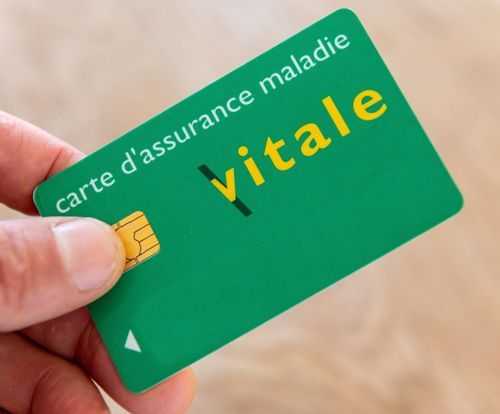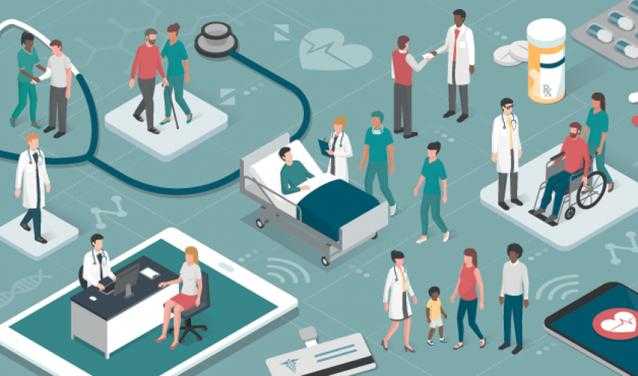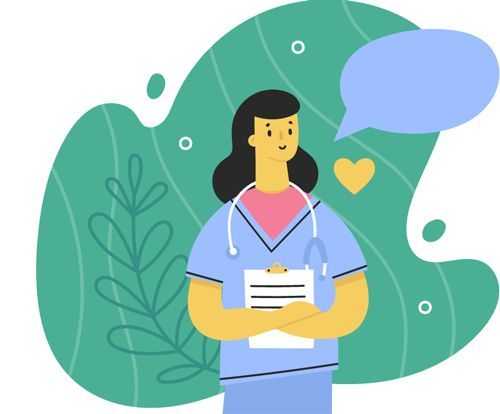
Home>Living>Health Services>Healthcare Coverage>The ABC of social security
The ABC of social security
To help you get to grips with the healthcare system in France, here is a glossary of useful social security terms.
This is France’s online health insurance website (FR). On it you can track your reimbursements, download eligibility certificates or details of your daily allowances, and ask questions by email. You will also find explanations of all aspects of the healthcare system in France (primarily in French, with some English translations).
This is a unique, secure identity card allowing you to identify yourself to the health insurance services. Once you have it you will be reimbursed more quickly and won’t need to send your feuille de soins doctor’s forms by post. Having a Carte Vitale also means you can benefit from instant third-party payment at your doctor’s surgery and pharmacy.
The Caisse Primaire d'Assurance Maladie (CPAM) is the organisation that manages the healthcare expenses of anyone registered with the general system of social security in France, including students. The CPAM guarantees your right to access healthcare. It covers health risks relating to illness, maternity, disability and death.
If you do not have a Carte Vitale or if the healthcare professional you are seeing does not have the necessary computer equipment, they will give you a paper form entitled “feuille de soins”, at the end of the appointment. You need to fill out this form and send it to your local CPAM branch (FR) in order to be reimbursed. You can find the address of the CPAM to which you should send your form at the top of your provisional certificate of affiliation.
When you make an appointment with a doctor, the rate they charge will depend on their secteur (1, 2 or 3) and whether they have signed a convention fixing their rates at the standard rates for doctors of that sector. Any doctor who signs this convention is contractually bound to respect the rates set by the social security system.
- In Secteur 1, doctors have signed the convention and charge fixed rates set by the social security system nationally. They do not charge any additional fees (dépassements d’honoraires).
- In Secteur 2, doctors can charge additional fees. You will only be reimbursed for the rate set by the social security system and any difference will be yours to pay.
- Doctors who are non conventionné (Secteur 3) will charge additional fees. Only a small percentage of the fees will be reimbursed by the social security system.
The first time you make an appointment with a general practitioner, you can declare them as your médecin traitant. The médecin traitant is your personal doctor and primary contact point for any questions relating to your health. They will be able to provide tailored advice and refer you to a specialist where necessary.
In addition, you will get a better rate of reimbursement if you declare your médécin traitant to the social security system and consult them every time you need medical advice.
For Example
You make an appointment with a secteur 1 general practitioner charging the standard rate of €30 for an appointment.
- If this doctor is your médecin traitant, the social security system will reimburse 70% of the appointment cost, a total of €19 after deduction of a mandatory 2€ surcharge (participation forfaitaire) on all doctors’ fees.
- If this doctor is not registered as your médecin traitant, the social security system will only reimburse 30% of the appointment cost, a total of €7 after deduction of the 2€ surcharge.
A mutuelle, or complementary health insurance, is a top-up service covering the costs that remain after reimbursement by the social security system (e.g. the remaining 30% of your doctors’ fees). Subscription to a mutuelle is optional but recommended. However, you must be registered with the general French social security system before you can sign up for a mutuelle. There are a huge number of mutuelle schemes in France, with various offers available. It is a good idea to compare the options before selecting your own.
It is the role of your médecin traitant to refer you to other doctors, via a procedure called the parcours de soins coordonné. In this procedure, your médecin traitant is your primary point of contact, who can answer any questions and, where necessary, refer you to other healthcare professionals (specialists, hospital doctors, etc). It is essential that you follow the procedure and consult your médecin traitant first when seeking any kind of medical advice. This will guarantee you a better rate of reimbursement on your medical costs.
However, direct access is authorised and allows 70% reimbursement for the following specialists: gynaecologists, ophthalmologists, psychiatrists/neuropsychiatrists for 16-25 year-olds and stomatologists.
In line with the French decree n° 2023-178 of 13 mars 2023 relating to University Services of students Health, it is mandatory for all students to make at least one preventive medical appointment over the course of their time at university in France. This appointment will involve a free and confidential preventive health check-up, which is also an opportunity to discuss issues relating to health promotion and prevention in an accessible and personalised setting.
This free appointment is offered to all students registering for the first time. An email invitation outlining the details of the check-up will be sent to you during the academic year.
When you first sign up to the French healthcare system, you will be sent a provisional certificate of affiliation. This document certifies that you are affiliated to the social security system and qualify for healthcare coverage. Printed on the certificate is the address of the CPAM branch responsible for your file. It is to this address that you will need to send all feuille de soins doctor’s forms, as well as your provisional social security number, when requesting a reimbursement. This certificate does not yet qualify you to receive third-party payment: you will need to pay all your health costs upfront and then request a reimbursement afterwards. Likewise, you will not be able to set up an account on ameli.fr with this certificate.
Your social security number must be certified by the civil status services to become a definitive social security number.
You will receive your official certificate of affiliation by post as well as a form to request your carte Vitale (at a later date, the minimum waiting time for this is approximately 6 months).
When you first submit your registration to the social security system, a provisional social security number will be assigned to you so that you can get instant access to healthcare coverage.
Following a security check of your identity, the social security number will be confirmed to you by mail at a later date (the minimum waiting time is approximately 6 months)
The social security number is unique and valid for life: it will begin with a 1 or a 2, followed by the year and then month of your birth. Once you have received this number, you will be able to create your account on ameli.fr and request your Carte Vitale.
The third-party payment system allows Carte Vitale holders to receive their coverage instantly, without needing to pay upfront and then request a reimbursement. The system is available in most medical centres and pharmacies upon presentation of a valid Carte Vitale and a top-up insurance coverage.
In an Emergency
- Dial 112 for emergency services throughout the European Union
- Dial 15 for the SAMU (French emergency medical services)
- Dial 18 for your nearest fire station, which also administers first aid
- Dial 3624 for SOS médecin, a round-the-clock house visit service (calls cost 12 c/minute)
- Dial 3114 for any advice or emergency about Suicide
- Duty chemist/night pharmacies in Île de France (FR) or around France (FR)
- All hospitals have emergency services (FR)



